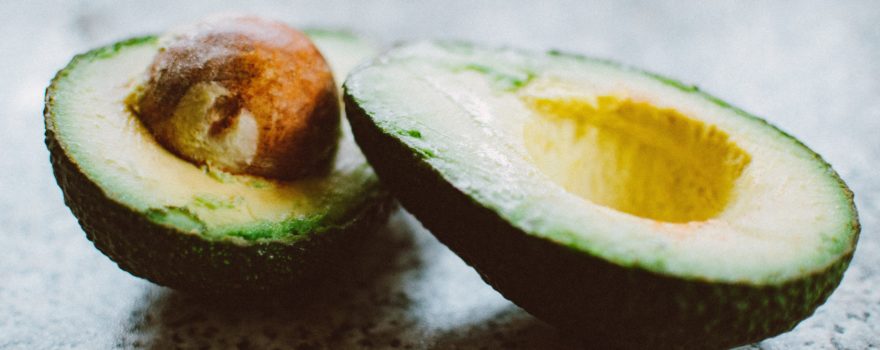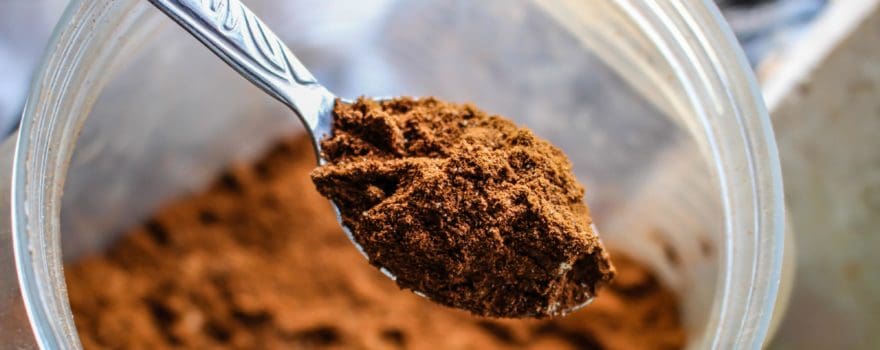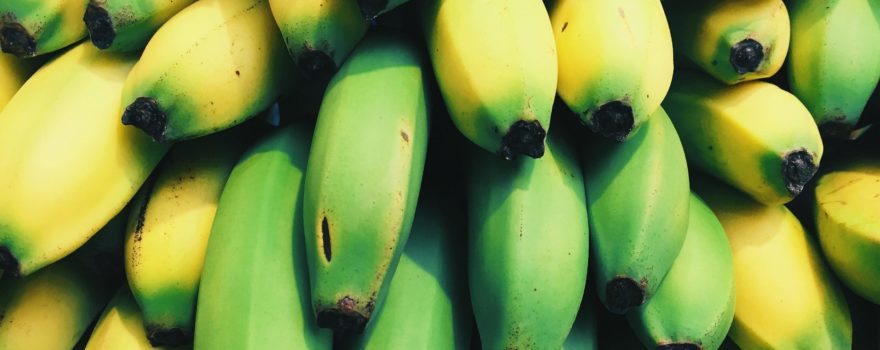The links between happiness and food are very strong, because our brain needs specific nutrients to function properly. Some nutrients are particularly essential to our good mood given their role in our body.
Thus, foods rich in omega-3s should be prioritized because they act on the brain’s chemical signals that regulate mood, notably serotonin and dopamine.
Vitamins B9, B12, and B6 also play an important role. A correlation has been observed between low levels of B vitamins and depression. These vitamins do indeed play an important role in the production of certain neurotransmitters.
Although studies on the topic are not yet numerous, a link has been observed between vitamin D deficiency and depression.
Finally, tryptophan, an essential amino acid (meaning it can only be obtained from our diet), is a precursor to the secretion of serotonin, the happiness hormone!
6 mood-boosting foods
1. Avocado

Avocado is a vegetable particularly rich in nutrients, especially in tyrosine, an amino acid from which dopamine and norepinephrine are produced, two neurotransmitters that influence our happiness.
Avocado also contains tryptophan and B-group vitamins, which are beneficial for the nervous system, as well as magnesium.
Avocado can be eaten several times a week.
2. Cacao

Cacao, or chocolate containing more than 70% cacao, is good for your mood in several ways. For its taste, of course, but also because of the nutrients it contains.
Particularly rich in minerals—especially magnesium—and B-group vitamins, it is a reliable option against bouts of low mood.
Cacao is best consumed raw, that is, unroasted. You can eat the beans directly, or consume it as a powder.
3. Banana

The banana is a preferred source of tryptophan and B vitamins. It also contains potassium, which regulates nerve impulses, and magnesium, which has been shown to have a positive effect on our mood.
The banana is preferably eaten raw, on its own or in a fruit salad, for example.
4. Goji Berries

Their name would mean “fruit of happiness” in Chinese. These small red berries are rich in amino acids, notably in tryptophan, B vitamins and magnesium.
They are also very rich in vitamin C (more than oranges) and therefore good for our overall energy.
In France they are generally available as dried fruits. They can be added to desserts or eaten alone as a snack.
5. Nuts

The walnut is made up of two-thirds fatty acids, essential for our brain. It is also a source of tryptophan and melatonin, a hormone beneficial for sleep and therefore for daily mood.
The Brazil nut is, in turn, very rich in selenium, a trace element very important for preventing stress, but also some cancers.
It is recommended to consume about 30 grams of nuts per day. Nuts are best enjoyed on their own, preferably fresh, in a fruit salad or on desserts.
6. Salmon

Salmon is particularly rich in so-called “long-chain” omega-3s, such as EPA and DHA. These are the ones that are particularly beneficial for health and the brain, because if they are lacking, the brain will contain fewer neurotransmitters.
Several studies have shown a direct link between low consumption of fatty fish and the onset of depression.
Salmon should be eaten 1 to 2 times a week. Raw, or gently cooked at a low temperature in the oven or in a poaching liquid, so as not to alter the omega-3s. It is not recommended to eat it every day due to pollutants in the fat it contains.



